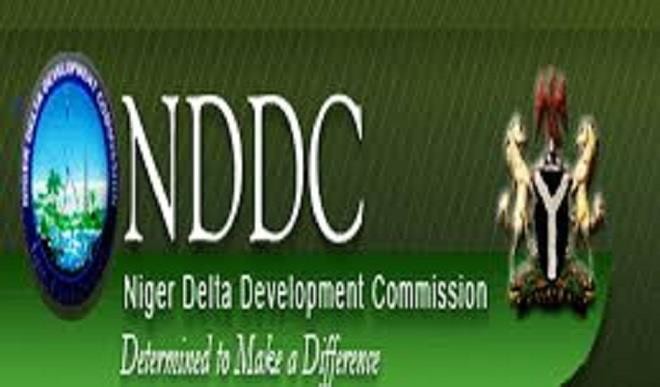As a former Editor-in-Chief of the Rivers State government owned ‘The Tide’ newspapers which is based in Port Harcourt where the Niger Delta Development Commission (NDDC) is collocated, and who personally witnessed its establishment, it is not surprising to this author that the chicken have metaphorically come home to roost, with respect to the affairs of the Commission.
Even as some Nigerians may have lost hope in home-grown heroes, Godwin Omene remains the man whose forced exit from that office, may have denied that agency, the foundation of innate capacity to get things right.
- NDDC: Group urges Buhari to heed Senate’s advice to sack Pondei-led management
- NDDC spent N1.3trn in 4 years – Senate panel
As the first ever Nigerian to emerge as Managing Director of Shell Petroleum Development Company Limited (SPDC) and pioneer Managing Director of the Commission (2001 -2003), Omene was apparently procured by the Olusegun Obasanjo administration to launch the Commission on a course of programmed and responsible service delivery.
His advent in the NDDC had offered the promise that whatever personal endowments that propelled him to the pinnacle of the SPDC management with its best fit global practices, would be availed the NDDC.
For those who know, they must be ruing the fact that Omene ended up a victim of contrived exit from the NDDC, leading to a hijack of its soul from an envisaged leadership through professionals with verifiable credentials and antecedents, by politicians and a run-away situation which spawned the build-up of in-house rot in the Commission.
While the details of the circumstances which led to the exit of this highly accomplished Nigerian professional remain a matter for another day, suffice it to be stated here that, what has since followed has been a cycle of open-ended, day-light looting of the common patrimony of the region, by even some of its leading lights.
It is therefore against such a backdrop that the developments in the NDDC over the years and which culminated separately in the cascade of events last week at the two Chambers of the National Assembly, qualify to be seen as just the latest episode of a long drawn drama of the absurd, whose enduring theme is the degeneration of the NDDC, into the poster face of impunity-driven corruption Nigeria.
As is easily recalled, virtually all political developments in the country were sidelined by the drama last Monday at the House of Representatives investigative hearing on the NDDC when its Acting Managing Director Daniel Pondei operating under the illegal Interim Management Committee (IMC), literally collapsed under cross examination.
Ever since the development, reactions from various sections of the Nigerian public and especially gossip circles have featured in varying hues, with some even insinuating that the man may have indulged in play-acting his collapse in public.
Nevertheless, whether Pondei was play acting or not, is less of an issue than the wider implications which the entire circumstance of the investigation bears.
Indeed, considering the fuller import of the challenges facing the man at the centre of the drama, it will be surprising if such would not quake any man – with or without a lion heart.
Even as things stand, the turn of events over the matter hardly points to any other direction than a late realisation by him, that he may have walked himself into the role of a sacrificial lamb for serving the interests of cavalier sponsors, who may have used and dropped him.
The core of the matter this time remains whether Pondei and his management team obtained due approval prior the disbursement exercise.
In fact, the entire gamut of public misgivings over the disbursement is hinged on the question of due process in the spending binge, by the IMC.
However the resolution by the Senate last week that the IMC refund the sum of N 4.9 billion, being unauthorized expenditure, largely answers that question.
The Senate also resolved that the IMC be disbanded while the Commission be availed a proper board as provided by law.
The Senate also indicted the Ministry of Niger Delta Affairs for negligent oversight, and recommended the return of the supervision of the NDDC to the Presidency from the Ministry of Niger Delta Affairs.
The House of Representatives investigative hearing witnessed its portion of twists when in a rather loquacious manner, the Minister of Niger Delta Affairs Godswill Akpabio, executed what was generally seen as a deliberate play-out of prevarication and distraction, to vitiate the integrity of the Committee that most of NDDC contracts were awarded to the members of the National Assembly.
In the absence of any evidence Akpabio’s statement qualified to be seen by the House as amounting to a scurrilous and hasty generalization, with devastating import on the integrity of the National Assembly in the public domain.
Hence falls into place the response of the House of Representatives through its Speaker Femi Gbajabiamila to initiate legal proceedings against Akpabio or perjury, if the latter failed to provide evidence to support his claim of 60% of NDDC contracts going to legislators.
For in line with the wide sweep of his claim, Akpabio actually owes the Committee and the country, a trove of information bordering on all such contracts awarded to legislators and their interests throughout the life of the NDDC – since 2001 when the Commission was established.
After all, such an expectation is hardly a demand for any pound of flesh from him, but remains a legitimate outcome of the forensic audit exercise he purportedly oversees.
The common ground between the two scenarios of questionable disbursements by the IMC and the alleged award of disproportionate quantum of contracts to legislators, is the likely breach of public finance rules. And such remains sanctionable.
From the flow of their designated narratives, it is apparent that public trust has been breached in all instances, hence it is important to know if contracts to members of the National Assembly were awarded to them as individuals, and under what circumstances.
Also of interest is whether the payments under consideration were made in accordance with due process.
Did such contracts go through ‘due process’? What roles did the bureaucrats in NDDC play with respect to the hemorrhage of the institution? Why is the NDDC making any payments before the conclusion of the forensic, if not for the purpose of serving special interest? Questions and more questions are ever raising their heads for mention.
In the final analysis, the lessons from the entire drama are legion. However of utmost significance is the interface between the National Assembly and the MDAs, in respect of which it interfaces with them for oversight activities.
In the matter of the NDDC it was apparent that the Committee had at its disposal and was guided solely by the submissions from the agency, without any independent verification of the integrity of such by its own in-house enterprise.
This situation leaves the National Assembly vulnerable to swallow hook, line and sinker, whatever an investigated MDA presents as its defense.
This is where the legislature needs to deploy the services of its National Assembly Budget and Research Office (NABRO), to intervene and develop for the institution, independent verification of evidence.
Meanwhile the point should not be lost that given the sensitivity and wide circulation of the matter of questionable disbursements and its associated fallouts, Nigerians expect to be carried along for the rest of the journey, to save the NDDC.

 Join Daily Trust WhatsApp Community For Quick Access To News and Happenings Around You.
Join Daily Trust WhatsApp Community For Quick Access To News and Happenings Around You.


